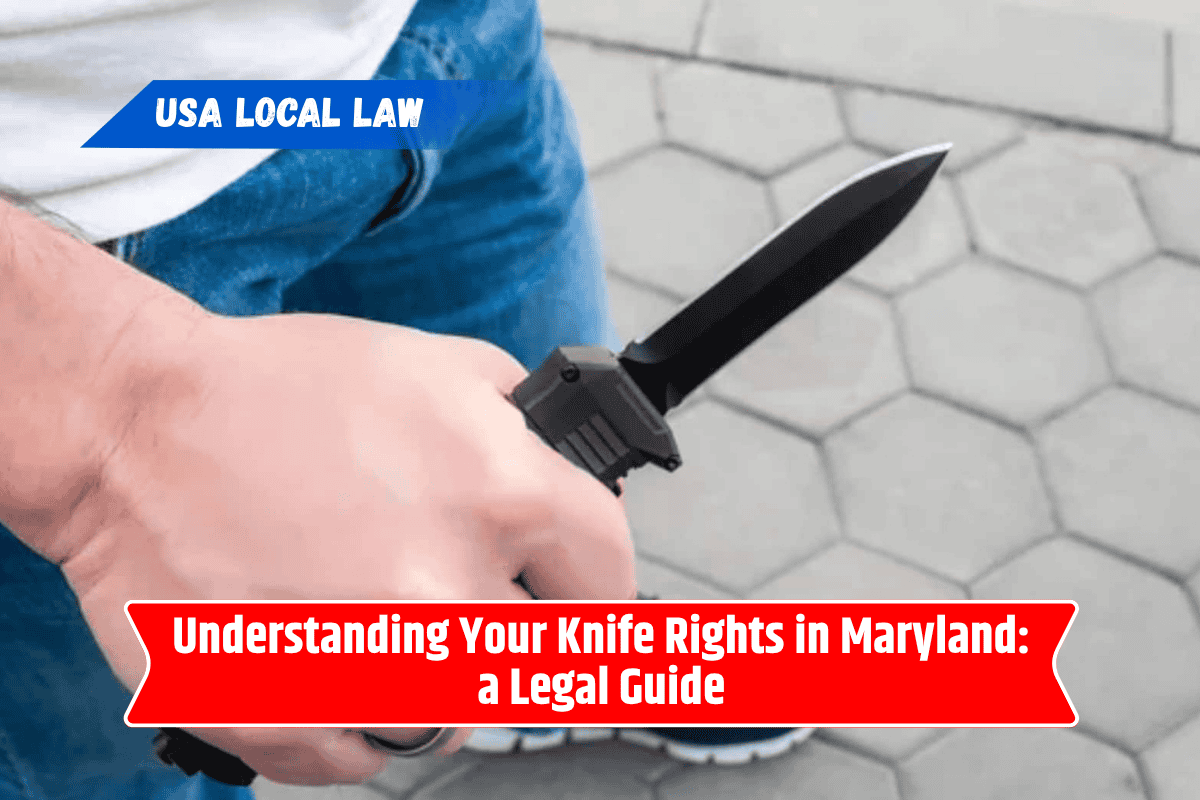Knives are everyday tools used for cooking, work, outdoor activities, and sometimes even self-defense. But carrying a knife isn’t always straightforward when it comes to the law.
In Maryland, there are specific rules about what types of knives you can carry, where you can carry them, and who is allowed to own them. This article simplifies Maryland’s knife laws so you can stay informed and avoid legal trouble.
Are Knives Legal in Maryland?
Yes, owning and carrying knives is generally legal in Maryland. But the type of knife and the way you carry it matters. Some knives are completely legal to own but may be illegal to carry in public. Maryland law separates knives into two categories: legal knives and restricted knives.
Legal Knives in Maryland
You can legally own and carry most common knives in Maryland, such as:
Pocket knives
Folding knives
Kitchen knives
Hunting knives
These are allowed as long as they are not used in a threatening or criminal way. There is no specific blade length limit for folding knives or pocket knives under Maryland state law. However, some local areas, like Baltimore, have their own rules about blade length.
Restricted or Illegal Knives
Some knives are banned from being carried, and even owning them can be risky depending on the situation. These include:
Switchblades (automatic-opening knives)
Gravity knives (blades that open by gravity or a flick of the wrist)
Butterfly knives (also known as balisongs)
Star knives (throwing stars)
While these may be owned in certain private situations, carrying them in public is illegal in most cases. Possession of these knives could lead to arrest or fines, especially if you’re found with them in a school zone, public park, or government building.
Open Carry vs. Concealed Carry
Maryland law allows you to openly carry legal knives without a permit. For example, having a knife on your belt or in your pocket is allowed if it’s not a banned type and you’re not using it to threaten anyone.
Concealed carry, however, is more complicated. If a knife is hidden and it’s not a folding pocket knife (such as a switchblade or other restricted knife), you could face legal issues, especially if you’re stopped by police and cannot give a good reason for having it.
Knife Laws Vary by City
It’s important to know that local knife laws can be stricter than state laws. Cities like Baltimore and Annapolis have their own rules, especially when it comes to blade length.
For example, Baltimore bans carrying knives with blades over 3 inches in public, even if they are legal under state law. So if you’re traveling in different parts of Maryland, always check local laws to avoid trouble.
Minors and Knife Possession
Minors (people under 18) are not allowed to carry certain knives unless it’s for a valid reason—like hunting, fishing, or work—with adult supervision. Carrying a knife to school or a school event is strictly banned and can lead to serious legal consequences.
Knives in Schools and Government Buildings
Maryland law strictly prohibits carrying knives on school grounds or in government buildings. Even if the knife is small and legal elsewhere, bringing it into a restricted zone can result in criminal charges.
When Can a Knife Be Considered a Weapon?
Any knife, even a legal one, can be treated as a dangerous weapon if it’s used to threaten someone or during the commission of a crime. If a person uses a knife in a way that causes fear or harm, they can be charged with assault or a weapons offense, regardless of the knife’s size or type.
Understanding Maryland’s knife laws is important for anyone who owns or carries a blade. While most pocket knives and folding knives are legal, you must be careful about how and where you carry them.
Some knives are completely banned in public, and using any knife as a weapon can lead to serious charges. Always check your local laws and avoid carrying knives in schools or restricted areas. Being aware of these laws helps you stay safe and legal while using knives responsibly.
